Category: News
Senator the Hon. Matthew Samuda, led a multi-agency team to Great Bay in St. Elizabeth
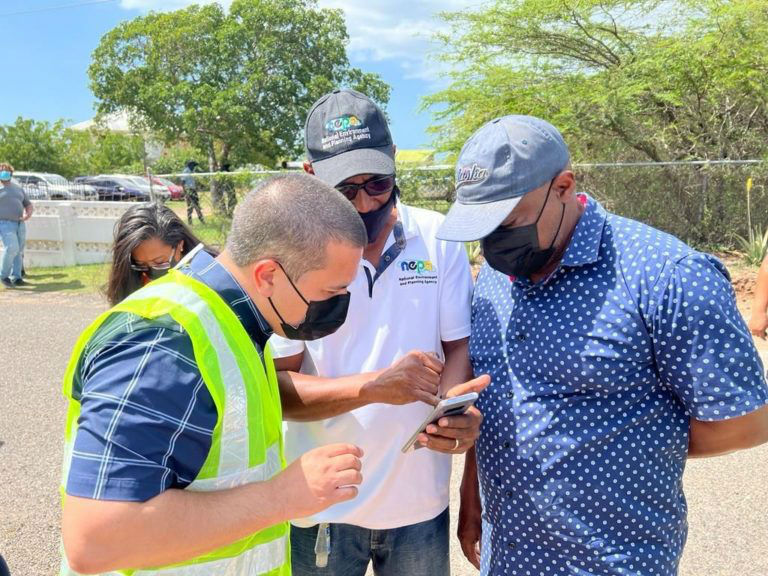
Senator the Hon. Matthew Samuda, led a multi-agency team to Great Bay in St. Elizabeth…
Minister without Portfolio in the Ministry of Economic Growth and Job Creation, Senator the Hon. Matthew Samuda, led a multi-agency team to Great Bay in St. Elizabeth, on Saturday February 19, 2022, to review the extent of damage to sand dunes in the area, following confirmed reports of illegal sand mining, and to engage local stakeholders on the ground.
See link below for more:
Senator the Hon. Matthew Samuda, led a multi-agency team to Great Bay in St. Elizabeth…

Minister without Portfolio in the Ministry of Economic Growth and Job Creation, Senator the Hon. Matthew Samuda, led a multi-agency team to Great Bay in St. Elizabeth, on Saturday February 19, 2022, to review the extent of damage to sand dunes in the area, following confirmed reports of illegal sand mining, and to engage local stakeholders on the ground.
See link below for more:
Housing stock improvement key to urban renewal, says Holness

Housing stock improvement key to urban renewal, says Holness
Minister Samuda to look into reports of illegal sand mining in St. Elizabeth
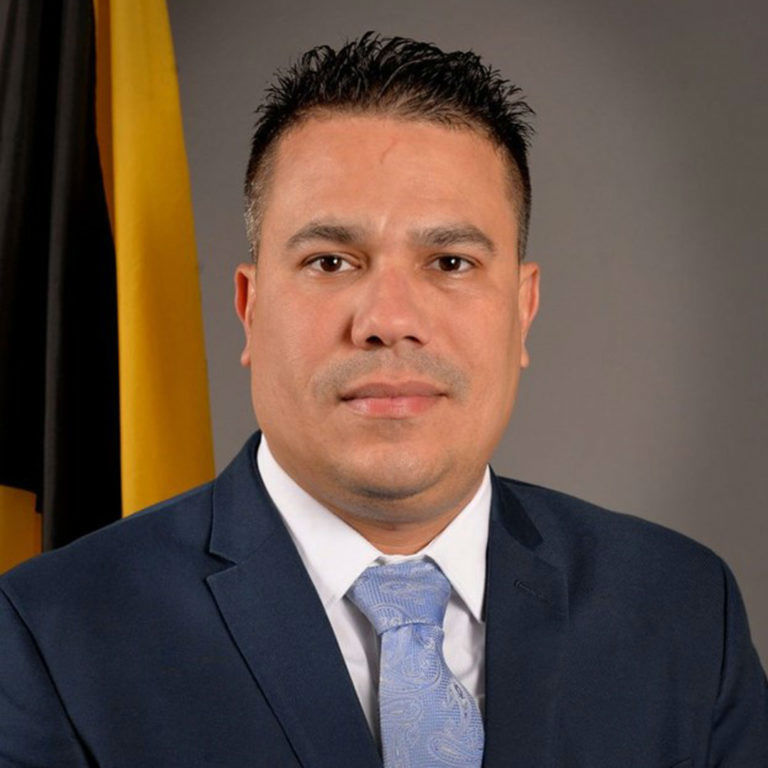
Minister Samuda to look into reports of illegal sand mining in St. Elizabeth
Minister without Portfolio in the Ministry of Economic Growth and Job Creation, Senator the Hon. Matthew Samuda, is to lead a multi-agency team to Great Bay in St. Elizabeth, on Saturday February 19, 2022, to review the extent of damage to sand dunes in the area, following confirmed reports of illegal sand mining, and to engage local stakeholders on the ground.
The team will comprise high level officials from the National Environment and Planning Agency (NEPA), the Mines and Geology Division of the Ministry of Transport and Mining, and the Ministry of Economic Growth and Job Creation.
The visit on Saturday, follows a joint site inspection of Great Bay in the parish, by the NEPA, and the Commissioner of Mines on Wednesday.
“The removal of the sand would have necessitated the issuance of an Environmental Permit under the Natural Resources and Conservation (NRCA) Act. However, no mining license nor environmental permit was issued for the area where mining occurred.”
He emphasised that, “stemming from today’s visit the NEPA will be taking enforcement action for this illegal activity. Further, the operator of the facility was given instructions to desist from carrying out this practice until the matter is clarified.”
The Minister added he fully intends to update the Cabinet on the matter, and that the full extent of the law would be brought to bear against any operator found to be removing sand illegally.
Housing stock improvement key to urban renewal, says Holness
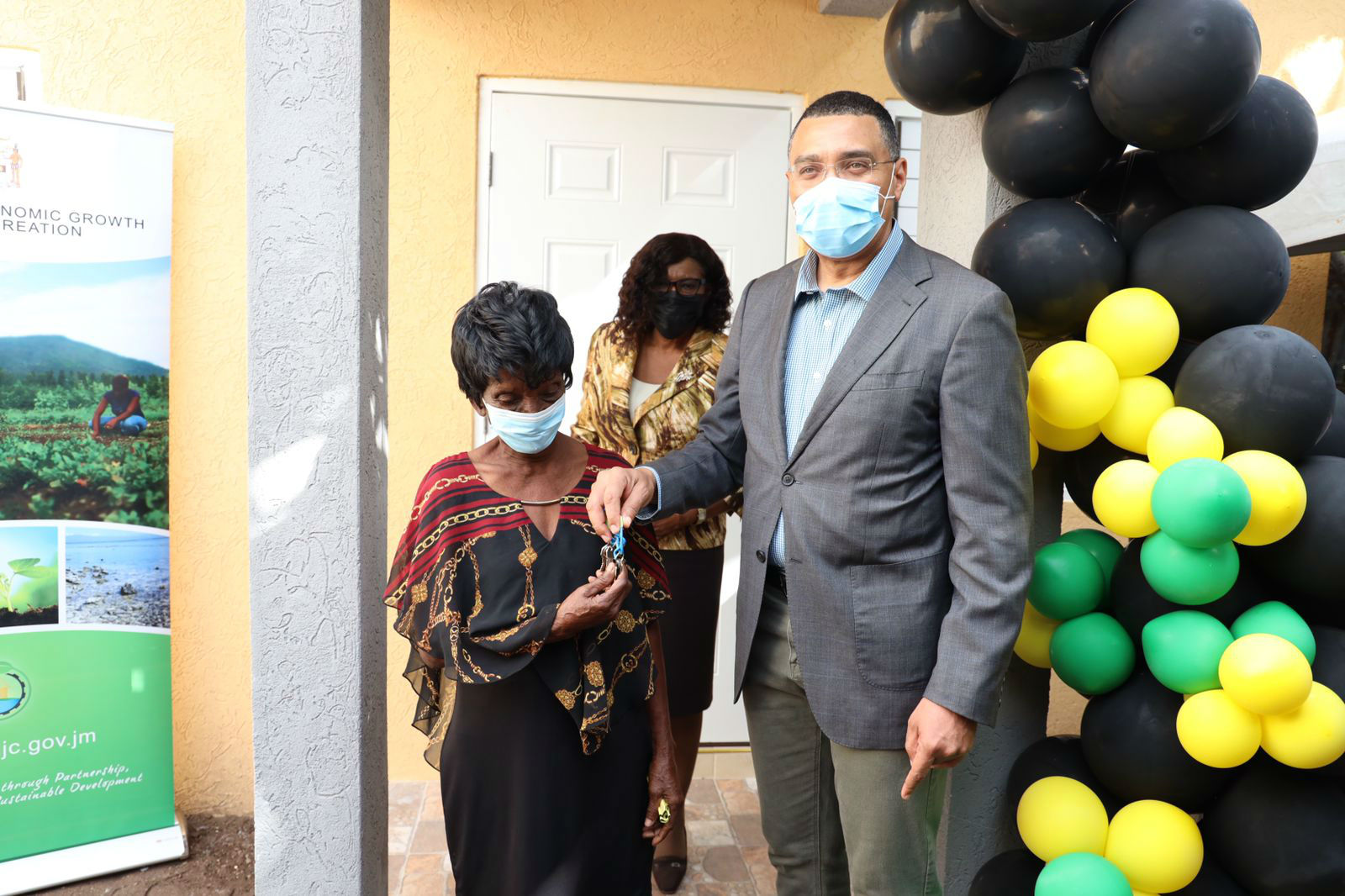
Minister Samuda to look into reports of illegal sand mining in St. Elizabeth
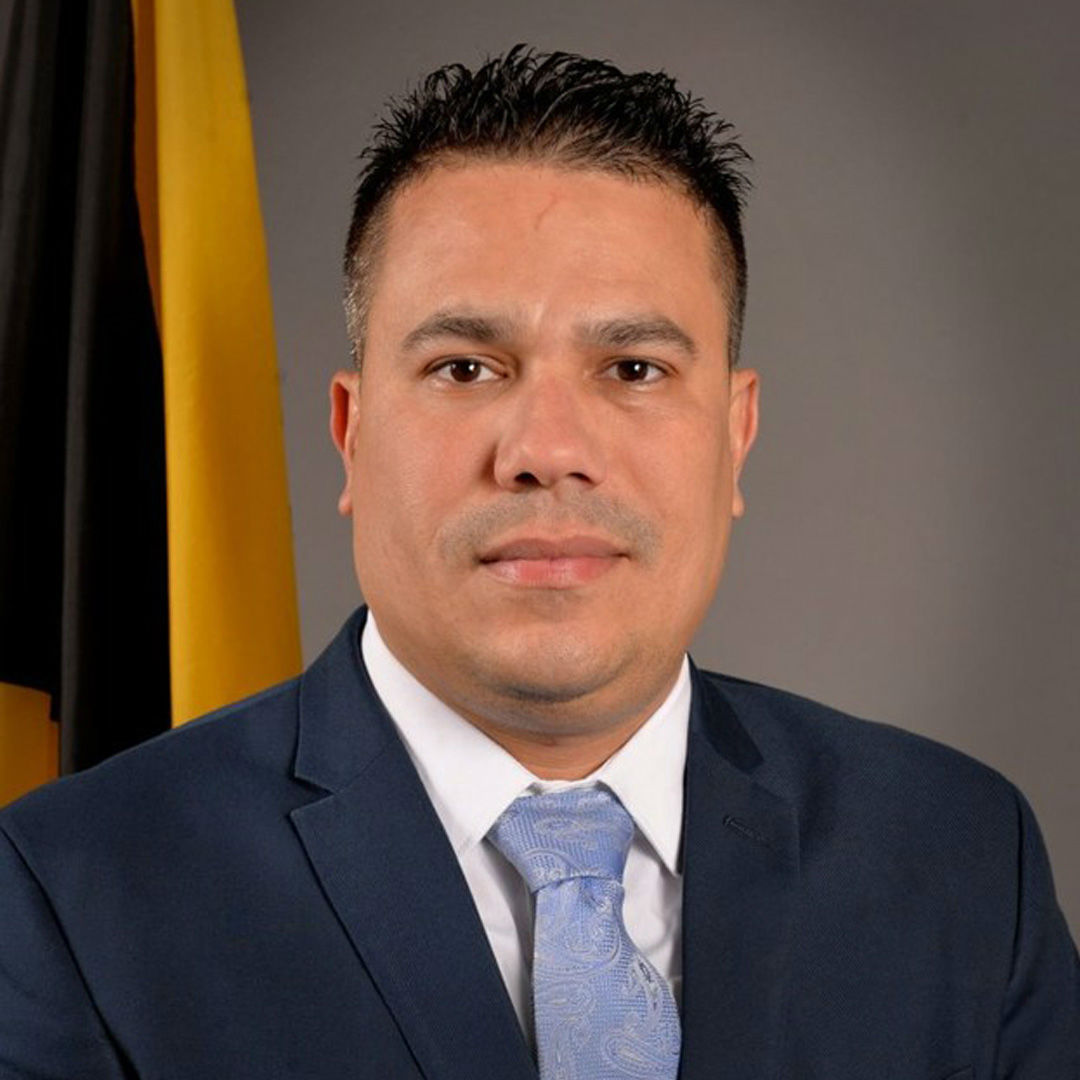
Minister without Portfolio in the Ministry of Economic Growth and Job Creation, Senator the Hon. Matthew Samuda, is to lead a multi-agency team to Great Bay in St. Elizabeth, on Saturday February 19, 2022, to review the extent of damage to sand dunes in the area, following confirmed reports of illegal sand mining, and to engage local stakeholders on the ground.
The team will comprise high level officials from the National Environment and Planning Agency (NEPA), the Mines and Geology Division of the Ministry of Transport and Mining, and the Ministry of Economic Growth and Job Creation.
The visit on Saturday, follows a joint site inspection of Great Bay in the parish, by the NEPA, and the Commissioner of Mines on Wednesday.
“The removal of the sand would have necessitated the issuance of an Environmental Permit under the Natural Resources and Conservation (NRCA) Act. However, no mining license nor environmental permit was issued for the area where mining occurred.”
He emphasised that, “stemming from today’s visit the NEPA will be taking enforcement action for this illegal activity. Further, the operator of the facility was given instructions to desist from carrying out this practice until the matter is clarified.”
The Minister added he fully intends to update the Cabinet on the matter, and that the full extent of the law would be brought to bear against any operator found to be removing sand illegally.
Ministry of Economic Growth and Job Creation to host “Town Hall” consultation on the Emissions Policy Framework and the updated Climate Change Policy Framework

Ministry of Economic Growth and Job Creation to host “Town Hall” consultation on the Emissions Policy Framework and the updated Climate Change Policy Framework.
The Ministry of Economic Growth and Job Creation, which houses the Environment and Climate Change Portfolios, will, next week, host a “Town Hall” consultation on two critical policies. They are the update of the Climate Change Policy Framework for Jamaica and the Emissions Policy Framework for Jamaica.
The upcoming “Town Hall” consultation, is one in a series of engagements being held by the Ministry, to gain input on the policies from the public.
To date, consultations have been held with environmental practitioners, youth groups, and transport, health, housing and energy experts in the public sector and civil society.
Addressing members of the private sector at another in the series of consultations on Tuesday, February 15, 2022, Minister Without Portfolio in the Ministry of Economic Growth and Job Creation Senator the Hon. Matthew Samuda, noted that the Paris Agreement under the UN Framework Convention on Climate Change was a key driver for the update of the Climate Change Policy Framework.
He also explained the difference between the two Policy Frameworks.
“The updated Climate Change Policy Framework signals Jamaica’s commitment to global climate action and to undertaking concrete actions at the national and local levels, whereas the Emissions Policy Framework.…puts forward several objectives, strategies and actions to improve the mechanisms that govern air quality management”, the Minister said.
Minister Samuda told members of the private sector, whose representatives were drawn from the tourism and energy sectors, the automotive industry as well as environmental professionals and engineers, among others, that a number of industries are affected by poor air quality.
“Those with businesses and livelihoods which involve indoor, labour-intensive work, know well how poor air quality severely impacts the productivity of your workers. Those in agriculture know how poor air quality affects plant and animal health….These are issues to be addressed by the Emissions Policy Framework for Jamaica.”
The Minister urged the private sector representatives at the consultation, to assist in identifying the gaps in the policies, whether they are legislative, research, public awareness raising or technology transfer-related, and to help identify additional opportunities for building collaborative and sustainable approaches.
“We also wish for you to consider all these matters within the context of equitable transitions towards a green economy with green jobs and clean energy for our citizenry”, he said.
The upcoming “Town Hall’ consultation on the Emissions Policy Framework for Jamaica and the updated Climate Change Policy Framework for Jamaica, will be streamed virtually via Zoom, the Ministry’s social media platforms and the Jamaica Information Service’s online platforms, on Tuesday February 22, 2022, beginning at 6:00 p.m. Members of the public are invited to attend.
Both policies may be viewed on the Ministry’s website at https://megjc.gov.jm/policies/ and the written comments on the policies can be sent to policycomments@megjc.gov.jm no later than March 31, 2022.
Ministry of Economic Growth and Job Creation to host “Town Hall” consultation on the Emissions Policy Framework and the updated Climate Change Policy Framework.

The Ministry of Economic Growth and Job Creation, which houses the Environment and Climate Change Portfolios, will, next week, host a “Town Hall” consultation on two critical policies. They are the update of the Climate Change Policy Framework for Jamaica and the Emissions Policy Framework for Jamaica.
The upcoming “Town Hall” consultation, is one in a series of engagements being held by the Ministry, to gain input on the policies from the public.
To date, consultations have been held with environmental practitioners, youth groups, and transport, health, housing and energy experts in the public sector and civil society.
Addressing members of the private sector at another in the series of consultations on Tuesday, February 15, 2022, Minister Without Portfolio in the Ministry of Economic Growth and Job Creation Senator the Hon. Matthew Samuda, noted that the Paris Agreement under the UN Framework Convention on Climate Change was a key driver for the update of the Climate Change Policy Framework.
He also explained the difference between the two Policy Frameworks.
“The updated Climate Change Policy Framework signals Jamaica’s commitment to global climate action and to undertaking concrete actions at the national and local levels, whereas the Emissions Policy Framework.…puts forward several objectives, strategies and actions to improve the mechanisms that govern air quality management”, the Minister said.
Minister Samuda told members of the private sector, whose representatives were drawn from the tourism and energy sectors, the automotive industry as well as environmental professionals and engineers, among others, that a number of industries are affected by poor air quality.
“Those with businesses and livelihoods which involve indoor, labour-intensive work, know well how poor air quality severely impacts the productivity of your workers. Those in agriculture know how poor air quality affects plant and animal health….These are issues to be addressed by the Emissions Policy Framework for Jamaica.”
The Minister urged the private sector representatives at the consultation, to assist in identifying the gaps in the policies, whether they are legislative, research, public awareness raising or technology transfer-related, and to help identify additional opportunities for building collaborative and sustainable approaches.
“We also wish for you to consider all these matters within the context of equitable transitions towards a green economy with green jobs and clean energy for our citizenry”, he said.
The upcoming “Town Hall’ consultation on the Emissions Policy Framework for Jamaica and the updated Climate Change Policy Framework for Jamaica, will be streamed virtually via Zoom, the Ministry’s social media platforms and the Jamaica Information Service’s online platforms, on Tuesday February 22, 2022, beginning at 6:00 p.m. Members of the public are invited to attend.
Both policies may be viewed on the Ministry’s website at https://megjc.gov.jm/policies/ and the written comments on the policies can be sent to policycomments@megjc.gov.jm no later than March 31, 2022.
Government Committed to Providing Reasonable and Decent Housing Solutions for Jamaicans
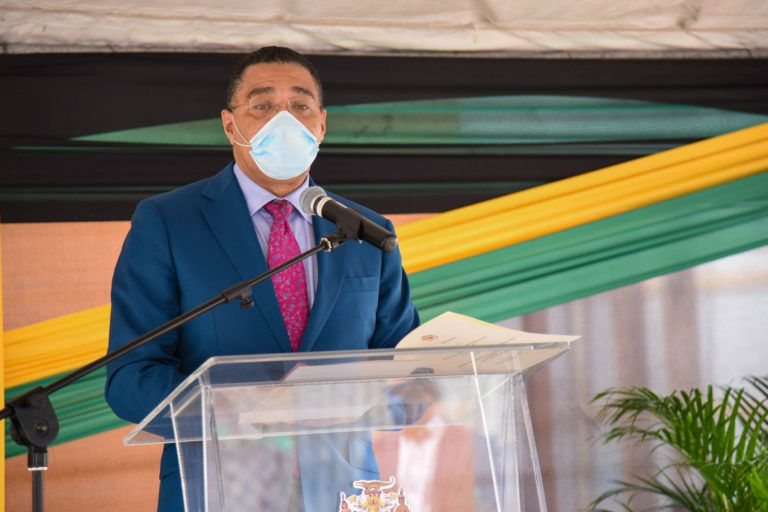
Government Committed to Providing Reasonable and Decent Housing Solutions for Jamaicans
Prime Minister reiterates commitment as he discusses plans to upgrade former Olympic Gardens Police Station
Prime Minister Andrew Holness says the former Olympic Gardens Police Station is to be completely refurbished and upgraded to create a housing complex to be made available to beneficiaries in the constituency of West Central St. Andrew.
Noting that the complex will have 7 units, the Prime Minister says it will be completely overhauled with major work done to install new plumbing and electrical systems among other things. The Prime Minister also noted that two of the units are to be reserved; one for police officers who are attached to the constituency, and the other to be used as a type of community centre for the housing scheme.
In relation to police officers, the Prime Minister says, “There are police officers who reside out of town, and who may find it difficult to locate rentals in proximity to the Olympic Gardens Police Station; some may be working overtime hours and will need a place to stay.”
Prime Minister Holness says the upgrading and rehabilitation of existing facilities, represents another type of housing solution to add to Jamaica’s housing stock.
He also noted that the upgraded housing complex will allow for the smooth transition and resettlement of West Central St. Andrew residents who may have settled irregularly in other areas. The Prime Minister says the availability of a place to facilitate their relocation, will allow them to have peace of mind and certainty and enable the efficient development of informal communities.
Financing for the massive upgrading of the building which is located at the Bay Farm Villa Housing Scheme will be provided through the West Central St. Andrew Trust.
The Prime Minister says the Ministry of Housing and the National Land Agency, NLA, have been asked to facilitate the upgrading of the facility and to make it available to beneficiaries.
The Prime Minister says the upgrading will be costly, but that funds are being raised and support is being requested, with interest already being shown by persons who support this type of meaningful development.
Meanwhile, the Prime Minister reiterated the Government’s commitment to providing housing solutions to all Jamaicans; he said the Government is moving steadily towards the goal of providing 70,000 new housing solutions.
Prime Minister Holness says some of these solutions will be provided through a market mechanism, some through subsidies, some through public means, some through private and charitable means and some through the social housing mechanism to those who meet the criteria to obtain them.
The Prime Minister was speaking on Friday (February 4, 2022), during a tour of the former police station building.

